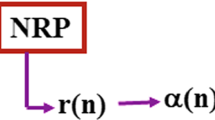Abstract
In this article I propose what I call the inverse spaceship paradox. The article’s interest lies in the fact that, contrary to what appears to be an implicit agreement in the literature on indeterminism, it shows that coming from infinity can be a perfectly predictable and therefore deterministic process in a classical universe.
Similar content being viewed by others
References
Benardete J. A. (1964) Infinity: An essay in metaphysics. Oxford University Press, Oxford
Clark M. (2002) Paradoxes from A to Z. Routledge, London
Moore A. W. (1990) The infinite. Routledge, London
Oppy G. (2006) Philosophical perspectives on infinity. Cambridge University Press, Cambridge
Pérez Laraudogoitia J. (1997) Classical particle dynamics, indeterminism and a supertask. The British Journal for the Philosophy of Science 48: 49–54
Russell B. (1921) The analysis of mind. Allen & Unwin, London
Van Fraassen B. C. (1989) Laws and symmetry. Oxford University Press, Oxford
Author information
Authors and Affiliations
Corresponding author
Rights and permissions
About this article
Cite this article
Laraudogoitia, J.P. The inverse spaceship paradox. Synthese 178, 429–435 (2011). https://doi.org/10.1007/s11229-009-9649-y
Received:
Accepted:
Published:
Issue Date:
DOI: https://doi.org/10.1007/s11229-009-9649-y




